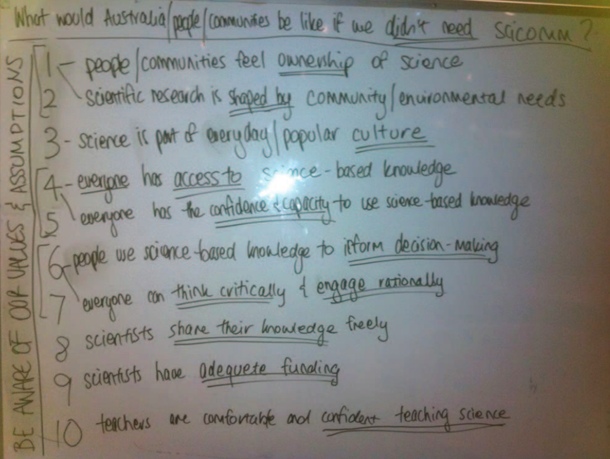Join your colleagues at the opening night of ASC2020 and reminisce about Australian science communication events and people – great and small. Celebrate our 25-year history as an organisation. Dig even further back into our Indigenous and colonial past.
Who have been our famous science communicators? When did it all start? What science communication events have shaped our country today?
Come along to Dooley’s Irish Bar on Sunday February 16 at 6.30pm. Form a team of 4-5 people. Give your team a name, and test your knowledge of Australia’s dark science communication past.
Ringmasters
Jenni Metcalfe, Director, Econnect Communication
Toss Gascoigne, Consultant
Michelle Riedlinger, Associate Professor / Consultant, University of Fraser Valley/Econnect
When: Sunday 16th February, 6:30pm-8:30pm
Where: Dooley’s Irish Bar, 2077 Dandenong Rd, Clayton VIC 3168
Cost: Free for delegates – RSVPs essential, $25 for public.
Hashtag: TBC



















